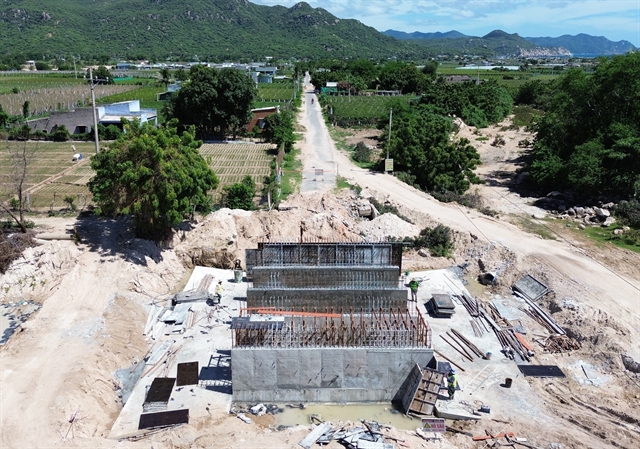 Society
Society

 |
| Phước Dinh commune in Thuận Nam District is the area previously planned for Ninh Thuận Nuclear Power Plant 1 in the south-central coastal province of Ninh Thuận.—VNA/VNS Photo Nguyễn Thành |
HÀ NỘI — Many experts in the field of nuclear energy believe that reviving the development of nuclear power is a correct policy.
The policy has been reviewed seriously and scientifically by the Government, rather than merely as a response to structural energy shortages.
Currently, the Ninh Thuận 1 and Ninh Thuận 2 nuclear power plants must adopt new, modern technologies to ensure the highest possible safety standards, with the goal that "nuclear power must elevate safety to its maximum, bringing risks down to zero."
Furthermore, depending on the socio-economic situation, special mechanisms should be implemented to facilitate the investment, construction and operation of the nuclear power plants.
Hoàng Anh Tuấn, former Director of the Nuclear Energy Department under the Ministry of Science and Technology, said that nuclear power plants were crucial projects related to national security.
Therefore, investment, construction, operation, decommissioning and safety procedures must comply with the Law on Atomic Energy, relevant regulations and the International Atomic Energy Agency’s (IAEA) nuclear power development standards.
Tuấn also said that Việt Nam has already gathered many essential resources for developing nuclear power, including suitable locations, a skilled workforce, and a comprehensive legal framework.
The country had a nuclear regulatory system, the Law on Atomic Energy and regulations for the construction of nuclear power plants.
However, it must continue investing in advanced training programmes to ensure a workforce capable of supporting nuclear power projects that meet international standards for safety, security, efficiency and sustainability.
Lê Doãn Phác, also a former Director of the Nuclear Energy, said that the locations for the Ninh Thuận 1 and 2 nuclear power plants, with a combined capacity of 4,000 MW, situated in Thuận Nam and Ninh Hải districts, had been thoroughly researched by the Vietnamese Government in collaboration with Russia and Japan.
The plans remain in the feasibility study phase, and Việt Nam must continue doing research within that this phase to avoid unnecessary waste.
What needs to be remembered is that the Ninh Thuận 1 Nuclear Power Plant project was a collaboration between Việt Nam and the Russian Federation.
The Russian side completed and handed over the site approval documents and the English version of the feasibility study report at the end of December 2013.
The Ninh Thuận 2 Nuclear Power Plant project was a joint effort between Việt Nam and Japan.
The Japanese side also completed and handed over the site approval documents and feasibility study report, based on feedback from stakeholders, including a second revision to clarify geological conditions and seismic calculations at the site in 2014.
Additionally, Vietnamese scientists had undertaken independent State-level research on the proposed locations for the Ninh Thuận 1 and 2 nuclear power plants.
The studies addressed various issues, particularly those concerning earthquakes, active fault lines and tsunamis.
The site approval documents and feasibility study reports had been sent to relevant ministries for review as per regulations.
In early September 2015, Việt Nam Electricity submitted the site approval and feasibility study reports to the Prime Minister.
However, in 2016, Việt Nam decided to suspend the nuclear power project due to significant changes in the country's economic conditions at that time, compared to the economy when the initial decision was taken to invest.
Therefore, the Government should consider restarting the project from the feasibility study stage.
According to experts in nuclear energy, alongside the development of nuclear power to support Viêt Nam's strong commitment to achieving net zero missions by 2050, as pledged at COP26, it is crucial for Việt Nam to seriously consider nuclear energy as a future power source and to make adjustment and supplementation in Power Plan VIII.
The National Assembly on Saturday approved the continuation of the Ninh Thuận Nuclear Power Project and additional budget allocations for 2024, including a raise in the base salary for civil servants to VNĐ2.34 million ($92) per month.
The decisions were part of a resolution passed unanimously on November 30 during the 8th session of the 15th National Assembly. — VNS




